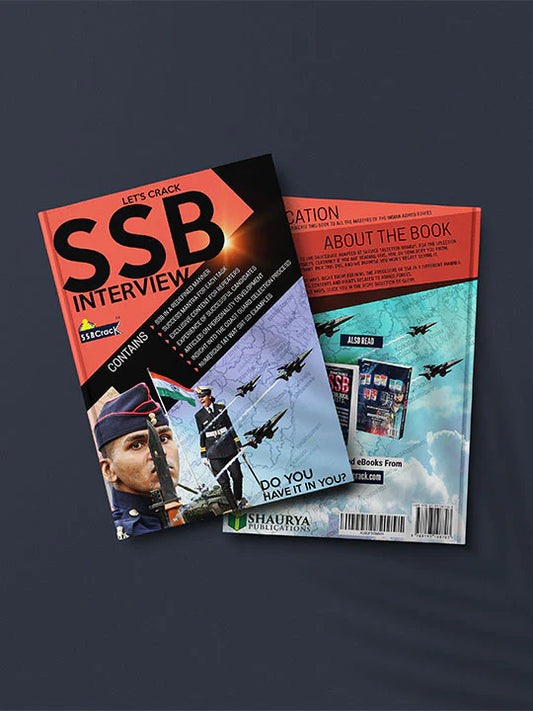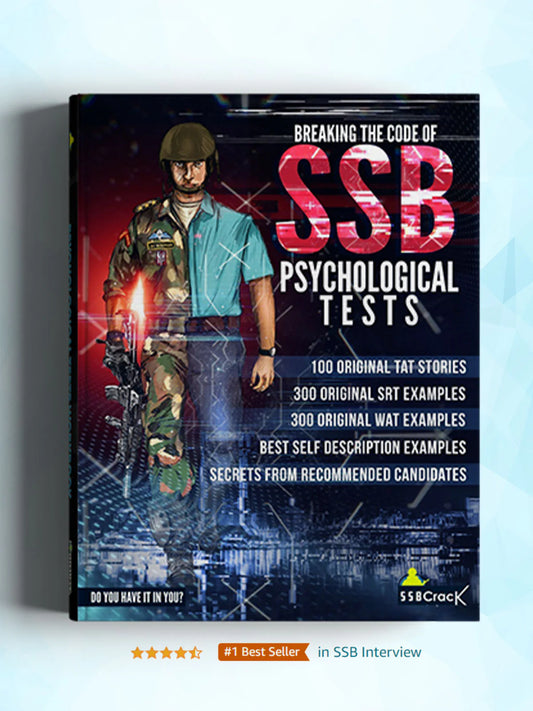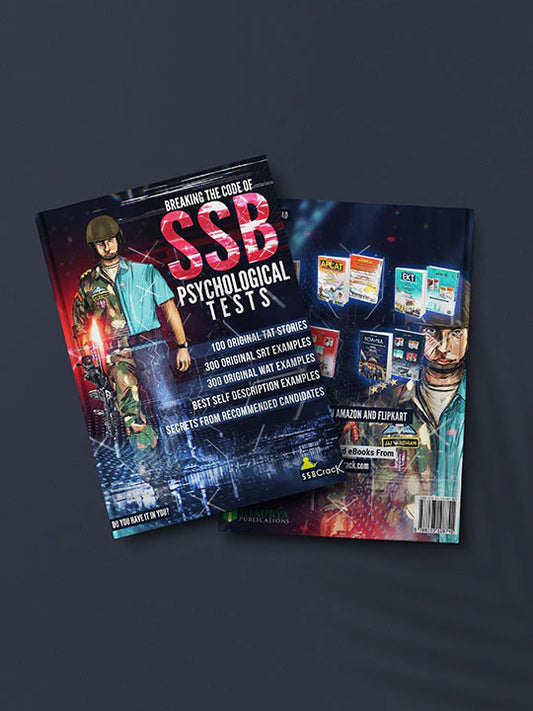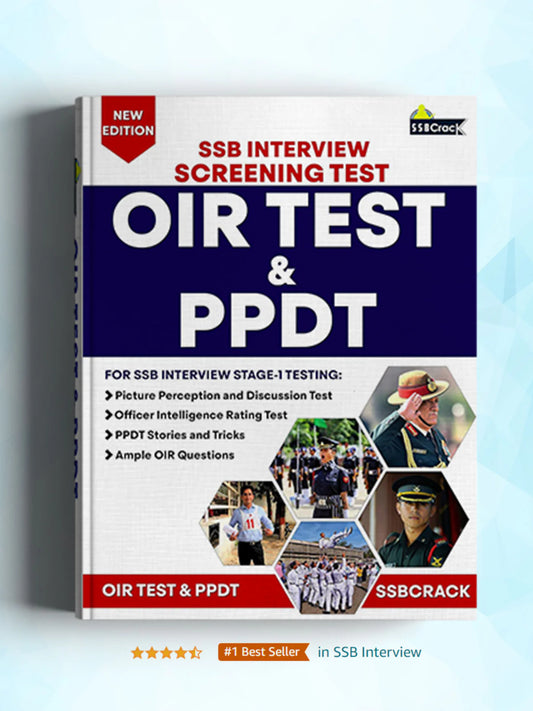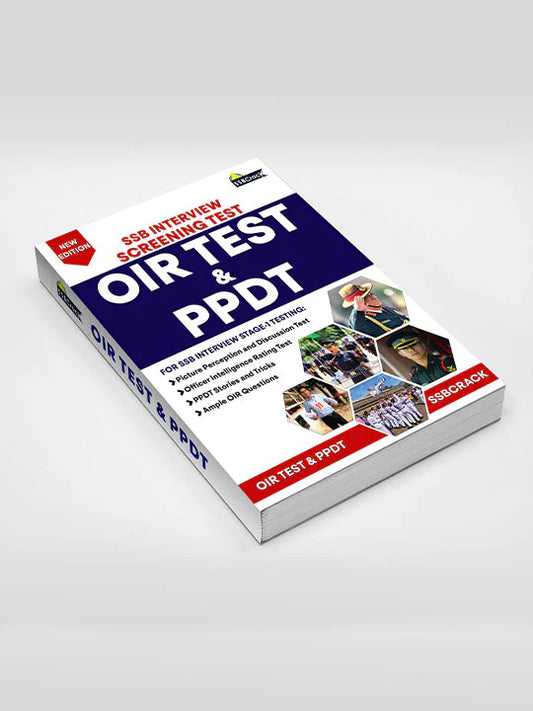Individual Obstacles in SSB Interview, Check Complete List of Tasks
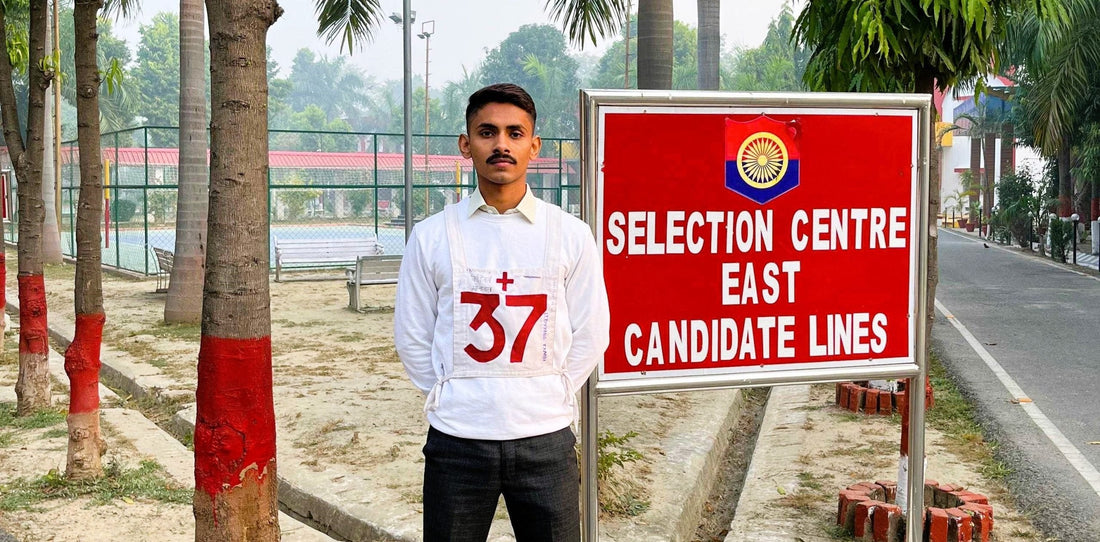
The Services Selection Board (SSB) interview is a vital process for candidates aspiring to serve in the Indian Armed Forces. It encompasses a series of tests and evaluations designed to assess the psychological and physical capabilities of candidates. While many undergo meticulous preparations for technical skills and general knowledge, a significant number encounter individual obstacles that impede their progress in the selection process. Understanding these obstacles is paramount for mitigating them effectively and enhancing one's chances of selection.
The SSB interview process has its roots in the early 20th century, evolving from the selection methods used in the British Indian Army. Over the years, the approach has undergone several transformations to align with modern psychological theories and assessment techniques. The introduction of group discussions, personal interviews, and various psychological tests reflects an understanding that personal attributes like leadership, team dynamics, and mental agility are critical for effective military functioning. Recognizing individual obstacles in this evolving context is crucial, as it helps aspiring candidates identify potential barriers and develop strategies to overcome them.
SSB Interview Books Power Pack: 4 Must Read Books for Defence Aspirants
Rs. 1,760.00
Sale price
Rs. 1,399.00
Let's Crack SSB Interview Book [Paperback]
Rs. 390.00
Sale price
Rs. 360.00
Breaking The Code of SSB Psychological Tests Book - SSB Interview (TAT/WAT/SRT/SD)
Rs. 390.00
Sale price
Rs. 360.00
OIR Test & PPDT Book - SSB Interview Screening Test - Stage 1 Testing
Rs. 490.00
Sale price
Rs. 375.00
Understanding Individual Obstacles in the SSB Interview
Individual obstacles can manifest in various forms during the SSB interview. These may stem from inherent personality traits, physical limitations, or psychological barriers that candidates face. Below, we explore some of the most common obstacles and how they might impact performance during the interview.
1. Lack of Preparation
Explanation: Many candidates underestimate the depth of preparation required for the SSB interview. A common misconception is that general knowledge and academic achievements are enough. However, the SSB evaluates candidates holistically.
Example: A candidate who excels academically but lacks familiarity with group discussions or outdoor tasks may struggle to express their ideas effectively or work collaboratively with peers.
2. Communication Skills
Explanation: Effective communication is critical in both personal interviews and group tasks. Candidates who experience anxiety or have not practiced articulating their thoughts may find it challenging to convey their ideas clearly.
Expert Opinion: Dr. Ashok Kumar, a renowned psychologist specializing in candidate assessments, emphasizes, "Communication skills can significantly influence how a candidate is perceived. Clear articulation of thoughts can enhance one's visibility during group tasks or interviews."
3. Time Management
Explanation: The SSB interview includes multiple rounds that are time-sensitive, such as the Group Planning Exercise (GPE) and various psychological tests. Candidates often falter when they cannot manage their time effectively.
Solution: Regular practice under timed conditions can help candidates develop better time management skills, ensuring they can complete tasks efficiently.
4. Fear of Failure
Explanation: The pressure to succeed can lead to a paralyzing fear of failure. Many candidates may experience anxiety due to the high stakes associated with the SSB interview.
Example: A candidate who becomes overly focused on the outcome might make rushed decisions during the group exercises, ultimately affecting performance.
Key Aspects of the SSB Interview Process
The SSB interview comprises several tests and tasks designed to evaluate a candidate's fitness for a position in the Defence services.
1. Psychological Tests
- Thematic Apperception Test (TAT): Candidates are shown ambiguous images and asked to create stories. This reveals their personality traits and thought processes.
- Word Association Test (WAT): This assesses how quickly and positively candidates can react to words. It provides insight into their subconscious beliefs and attitudes.
2. Group Exercises
- Group Discussion (GD): Candidates are assessed on their ability to communicate and collaborate with others. A dominating or overly passive approach can lead to poor performance.
- Group Planning Exercise (GPE): This entails solving a problem as a team. Individual preferences and weaknesses may surface here, highlighting the need for effective teamwork.
3. Personal Interview
During the personal interview, candidates are questioned on their background, aspirations, and responses to situational scenarios. It is essential for candidates to present their personal stories and ambitions confidently.
Challenges and Solutions
1. Mental Barriers
Many candidates experience anxiety or self-doubt, which can affect their performance. Tackling these mental barriers is essential.
Solutions:
- Mindfulness Techniques: Incorporating meditation or relaxation exercises can help reduce anxiety levels.
- Mock Interviews: Engaging in practice interviews can familiarize candidates with the pressure of the setting and build confidence.
2. Physical Obstacles
Physical fitness is another area where candidates may face setbacks. Inadequate preparation in physical tasks can be a significant hurdle.
Solutions:
- Fitness Regimen: Developing a balanced fitness routine to improve stamina and strength can enhance performance in physical evaluations.
- Skill Development: Practicing specific tasks, such as obstacle courses or team games, can improve physical agility and teamwork abilities.
3. Emotional Resilience
The SSB interview can be an emotionally taxing experience, leading to potential burnout or hopelessness.
Solutions:
- Support Systems: Encouraging candidates to seek support from peers, mentors, or coaching groups can foster resilience.
- Positive Reinforcement: Encouraging self-affirmations and focusing on past successes can build emotional strength.
Case Studies: Real-world Applications
To further understand the implications of these obstacles, let's examine the experiences of a few successful candidates who overcame individual challenges during their SSB interviews.
Case Study 1: Neha Singh
Neha, a computer science graduate, faced severe anxiety when required to communicate in group discussions. She sought help from a mentor and participated in various mock interviewing sessions organized by SSBCrack. Through consistent practice and tailored feedback, Neha improved her confidence, which ultimately led to her successful selection.
Case Study 2: Ravi Kumar
Ravi, an athlete, struggled with time management during tasks. Though physically fit, he often found himself completing tasks at the last minute, leading to compromised quality. By adopting a structured practice routine, leveraging tools like timers, and simulating interview conditions, he improved his time management skills. Ravi’s ability to organize his thoughts and tasks led to his selection in the recent SSB interview.
Statistical Data and Research Insights
Research conducted by the Defence Institute of Psychology highlights that approximately 40% of candidates fail the SSB interview due to individual performance barriers. Key findings indicate that:
- Communication skills directly correlate with 60% of success in group discussions.
- Candidates who actively practice psychological tests score significantly higher than those who do not engage in drills.
Comparative Analysis
When comparing successful candidates with those who fail, the trends show that preparation and psychological readiness are crucial differentiators.
- Prepared Candidates: They tend to engage in extensive mock interviews, participate in group discussions, and actively seek feedback.
- Unprepared Candidates: They often underestimate the need for preparation or lack clarity in their motivations and aspirations, leading to poor performance during critical evaluations.
Future Trends and Predictions
As the SSB interview process continues to evolve, various trends are emerging:
- Increased Use of Technology: With online courses and resources like SSBCrack, candidates can access valuable materials anytime. Virtual reality may also be used in the future to simulate realistic interview environments.
- Focus on Emotional Intelligence: Future assessments may place greater weight on emotional intelligence, honing in on how candidates manage stress, empathize, and collaborate with others.
- Holistic Development Programs: There will likely be an increased emphasis on comprehensive training programs that combine physical fitness, mental wellness, and communication skills tailored to the SSB interview.
Conclusion
Understanding the individual obstacles present in the SSB interview process is crucial for aspiring candidates aiming to enter the Defence forces. By identifying these hurdles—such as lack of preparation, communication issues, and emotional barriers—candidates can take proactive measures to address them.
Employing strategies like mock interviews, group discussions, and improved time management can pave the way for success. The journey through the SSB interview is challenging, but with the right tools and mindset, candidates can navigate their paths toward selection.
For those preparing for the SSB interview, seeking out resources such as the online courses, eBooks, and study materials from SSBCrack can provide invaluable support in overcoming these obstacles. Embrace the challenge, prepare thoroughly, and approach every task with confidence, and you will find success on your path to serving in the Defence forces.
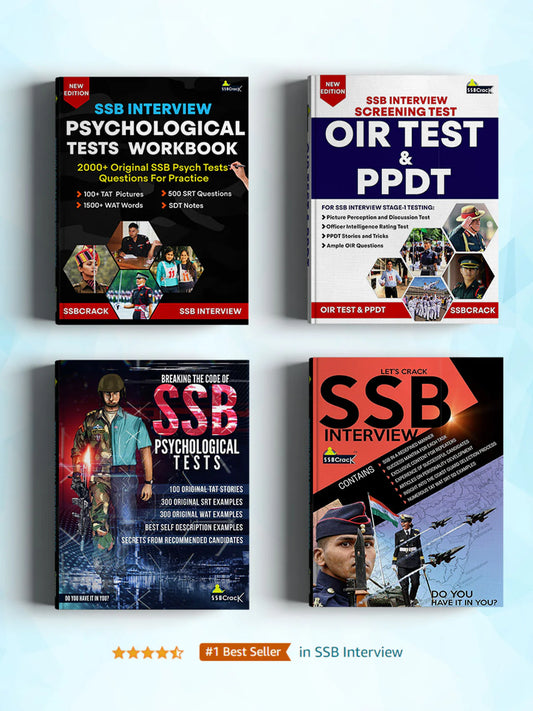
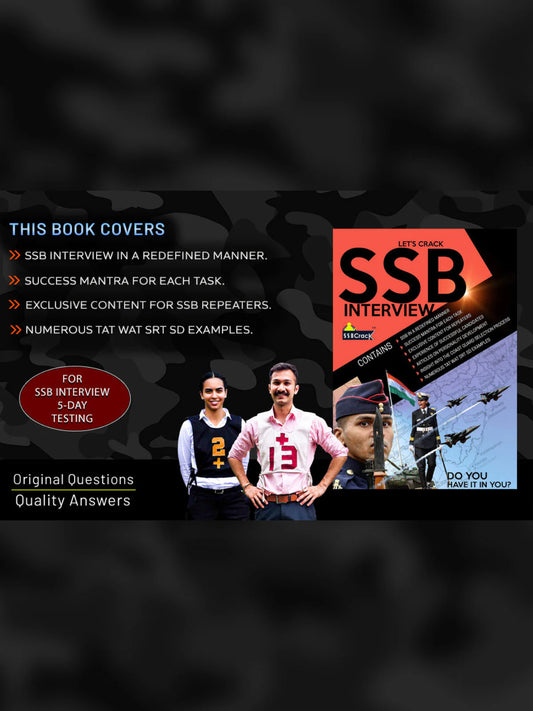
![Let's Crack SSB Interview Book [Paperback]](http://shop.ssbcrack.com/cdn/shop/files/ssb-books.webp?v=1736351621&width=533)
